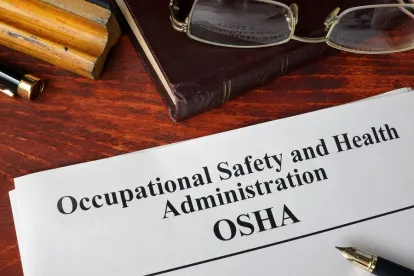Beginning in 2019, employers in California will now be on the hook for recordkeeping violations well beyond the six-month statute of limitations. Bill Number AB 2334 (Occupational injuries and illnesses: employer reporting requirements: electronic submission) co-sponsored by California Labor Federation and California Professional Firefighters was introduced by Thurmond (D) earlier this year, passed the State legislature and was signed by the Governor on September 19, 2018. The law goes into effect January 1, 2019.
This bill seems to be California thumbing its nose at the Trump Administration. In April 2017, President Trump signed a resolution which finalized the Congressional Review Act (“CRA”) process and nullified OSHA’s rule “Clarification of Employer’s Continuing Obligation to Make and Maintain Accurate Records of Each Recordable Injury and Illness,” informally referred to as the “Volks” rule. This Obama-era rule was an attempt to undo a decision by the U.S. Court of Appeals for the District of Columbia which held OSHA is prohibited from issuing employers citations for failing to record injuries or illnesses beyond the six-month statute of limitations set out in the OSH Act. AKM LLC d/b/a Volks Constructors v. Sec’y of Labor, 675 F.3d 752 (D.C. Cir. 2012).
AB 2334 changes the definition of “occurrence” in the California Labor Code for purposes of the statute of limitation for Cal/OSHA violations relating to recordkeeping. The legislature revised language in the Labor Code as follows:
A citation or notice shall not be issued by the division more than six months after the occurrence of the violation. For purposes of issuing a citation or notice for a violation of subdivision (b) or (c) of Section 6410, including any implementing related regulations, an “occurrence” continues until it is corrected, or the division discovers the violation, or the duty to comply with the violated requirement ceases to exist. Nothing in this paragraph is intended to alter the meaning of the term “occurrence” for violations of health and safety standards other than the recordkeeping requirements set forth in subdivision (b) or (c) of Section 6410, including any implementing related regulations.
This revised language provides that recordkeeping violations continue until they are corrected, until Cal/OSHA discovers the violation or until the duty to maintain the record no longer exists. In short, beginning January 1, 2019 Cal/OSHA has authority to issue citations for recordkeeping violations that exist during the entire five-year recordkeeping retention period.
Additionally, the bill also requires Cal/OSHA to monitor Federal OSHA’s actions regarding the electronic submission of injury and illness records (Improve Tracking of Workplace Injuries and Illnesses). In the event Federal OSHA “eliminates or substantially diminishes” the electronic submission requirements, Cal/OSHA is required to convene an advisory panel of both labor and management within 120 days to evaluate changes necessary to protect the goals of the electronic submission rule.
California employers should continue to review and update their work-related injury and illness records but should be prepared to see Cal/OSHA enforcement for recordkeeping violations that exist during the five year required retention period. And, if Federal OSHA eliminates the requirement for employers with 250 or more employees to electronically submit the 300 and 301 Forms, as is currently proposed, it is very possible California will convene an advisory panel and consider alternative measures to require California employers to submit such data.




 />i
/>i

